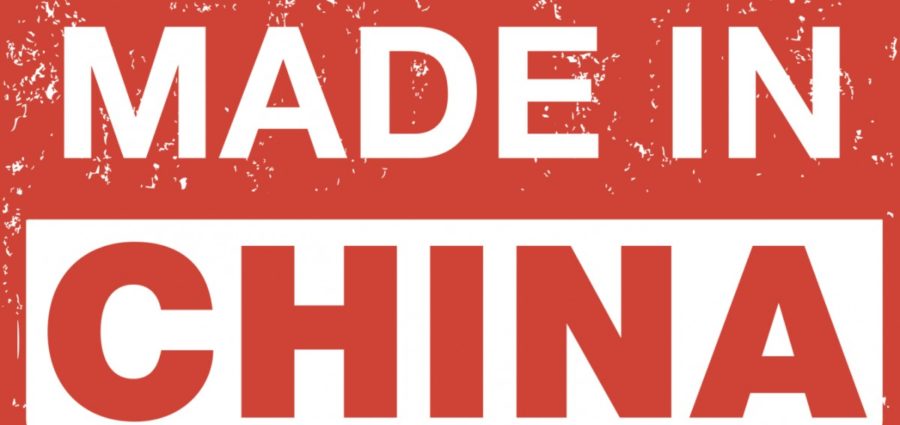The Chinese way of running their economic system is quite brilliant. I tip my hat to them.
To avoid a trade war, China must cease its economic war against America.
Quotes from Steven Bannon, Trump confidante
By the time the shots heard around the world were fired in Concord and Lexington in April 1775, improving the level of American technology through the “illegal” appropriation of England’s protected industrial technology became a prominent feature of the struggle for political and economic independence.
The British efforts to stem the outflow of machines and artisans failed. Americans rarely had difficulty appropriating the knowledge and machinery they sought. Industrial espionage overcame public and private restrictions.
Professor Doran Ben-Atar, Trade Secrets, Yale University Press
Steve Bannon, the eminence gris behind Trump’s mercantilist impulses, says lots of things. One is that he wants to tip his hat to the Chinese way of running their economic system. He should keep his hat on. The state dominated, mercantilist Chinese economic system is suboptimal and inferior to that of the United States. The offset of course is that there are 1.3 billion Chinese. The hard working, tech obsessed population is the country’s huge asset. A China running at half the efficiency of the US has to be taken seriously. The tilt since 1980 to allowing stock markets and private companies like Alibaba (BABA) or Tencent (700:HK) more than anything is what has driven China’s recent prosperity and set loose the talents of the Chinese people. A half a loaf is better than the no loaf of the pre-1980 days of Mao Zedong. But the US economy, with all its many imperfections, comes much closer to being the whole loaf.
If America with its 325 million population wants to retain its global dominance, the last thing it should do is imitate China. America must stay open to immigration, trade and ideas. It must stay smarter, stay free to be creative and not build barriers between it and the global economy. It must welcome foreign students and foreign talent. If a smaller United States wants to stay Number One it should not imitate the much larger but less efficient Number Two.
Made in China 2025
China is determined to improve its people’s standard of living and has realized at this stage of its development that technology is the key to this goal. In keeping with this, in 2015 China launched its Made in China 2025 program. Accordingly, policy and financial support will be provided to spur technological breakthroughs in 10 key areas, including next-generation information technology; high-end computer-controlled machine tools and robotics; space and aviation equipment; alternative-energy vehicles; and biomedicine and high-performance medical devices. In other words, China aspires to become self-sufficient in just about every important technological category. Made in China 2025 is China’s technological wish list.
Made in China 2025 and the approach it represents are viewed with apprehension by the China alarmists such as Bannon. Even the Obama Administration reacted by setting up a special commission to study the issue. Bannon has been quoted that China has declared economic war against the United States. He’s probably right. There are plenty of people in China who think in the zero-sum game mercantilist way he does. They think they are at war.
My answer to this, particularly in the world of technology, is “so what.” Global commerce and the spread of technology is a positive not a zero-sum game. If the Chinese are successful, the world will be a better place. But it is not even clear they will be successful. Made in China 2025 is somewhat vague in exactly how its objectives will be achieved but it appears to be a top-down, state bureaucracy-driven program. To put this in economist talk, the sums allocated are likely to have a low return on capital. In other words, be wasted. Top-down government approaches have a tendency to bog down due to dumb decisions made by bureaucrats lacking hands on knowledge and following a “one size fits all” approach. In 1966, Mao Zedong launched his now infamous totally top-down Great Leap Forward which was supposed to modernize China’s economy in five years. The result was a disaster. It would be foolish to predict Made in China 2025 will be a disaster on the scale of the Great Leap Forward but there are some similarities.
China has come up very quickly in the technology area but it still has a long way to go before it catches up to where the US is now. Some examples: In computer chips, China is the major global importer of semiconductors. It has little significant capacity in this area at the moment. China supposedly in the coming years is going to spend upwards of $130 billion to build semiconductor fabs (factories) just in the memory area. Many in the industry are skeptical that this will succeed. At any rate it will be a bonanza for Western semiconductor equipment companies which China must rely on to build its fabs. In aviation, China still has a long way to go before its C919 can challenge the Boeing/Airbus duopoly on large airliners. In artificial intelligence (AI), it is difficult to know which country is ahead but according to one (March 11, 2017) article in the South China Morning Post from Q1 2012 to Q2 2016 US AI firms received $17.9 billion in financing vs $2.6 billion for Chinese
AI companies. So who would you bet on? Many Silicon Valley observers put Alphabet (GOOGL) in the number one global spot in large company AI. Even in genomics, where China has poured in resources, Chinese companies cannot match the latest sequencing machines from San Diego based Illumina (ILMN).
There is however one area where China has a potential comparative advantage. That area is data. 1.3 billion Chinese—that’s a lot of data to train AI systems on!
Technology Is Global
Technology yearns to be free and global. Advances in one part of the world quickly migrate to the rest. With technology, nobody is an enemy. Technical knowledge and brains spread quickly and globally. And the world’s standard of living improves.
It is wrong to speak of American tech companies even though so many are headquartered in the US and traded on US stock exchanges. These companies from an economic viewpoint are global companies whether Trump or Bannon like it or not. Take for example the new Apple i10 phone. Designed in the USA, chips manufactured in Taiwan, OLED screens made in Korea, glass covers made in the US, and hundreds of other parts coming from around the world. And then assembled in China! It would be a similar global story for the Boeing Dreamliner and, according to the media, even the above-mentioned Chinese C919 airliner. In technology, no nation can be an island.
But Aren’t the Chinese Stealing Western Technology?
The honest answer is that perhaps they have. Four comments on this: First, Western companies are aware of what the Chinese are doing. When they set up their JVs in China, they are aware that technology transfer is a major Chinese objective. So it’s a business decision. Access to the Chinese market has its costs. Yes Siemens and Kawasaki Heavy Industries think the Chinese stole high speed train technology from their JVs. But the big global companies aren’t children and can protect themselves accordingly.
Moreover, JVs have not always gone so well from the Chinese point of view. To quote an article (Sept 1,2017) from the Financial Times:
“Rather than transforming the car companies into technology giants, the JVs have arguably made Chinese complacent. He Guangyang, a former minister of industry, controversially described the JVs like ‘opium’”.
It seems mercantilist policies encourage rent seeking behavior. The foreign auto companies did not try to innovate in China.
Second, patents have value in international markets. For example, in 2009, Shanghai based Semiconductor Manufacturing International Corporation (SMI) lost a serious of lawsuits filed by Taiwan Semiconductor (TSM) regarding the theft of intellectual property. Another example, Qualcomm (QCOM), with some effort, has been able to protect its patents in China.
Third, Americans, when the British had their industrial revolution from 1750-1850, strove mightily to steal British technology. Harvard Professor Doran Ben-Atar, quoted above, has related the entire history of American industrial espionage in this period. One agent who managed to furtively bring British technology to America was Samuel Slater. American President Andrew Jackson called Slater the “Father of the American Industrial Revolution.” The British called him “Slater the Traitor.” Taking a historical perspective, the American motto today seems to be Do as we say, not as we did.
Fourth, hopefully as China moves up the tech curve the preservation of intellectual capital will move up on the list of Chinese priorities. As it did on the American.
But What About Military Technology?
It is clearly not in the United States’ interest to have secret military technology transferred to China. But the problem is that it is the global consumer markets which are driving the advancement of technology. The civilian markets are driving the technology, not the military markets. For example, the demands of computer gaming have driven the innovation behind computer chips for companies like Nvidia (NVDA). Nvidia’s game-oriented GPUs have now evolved to be used in AI, autonomous driving and the Cloud. AI, for one, most definitely has military applications.
The problem is that most civilian-oriented tech breakthroughs have military applications. The US should not solve the problem of transfers of military technology by halting technological progress in the US. The Chinese market is an important market for the semiconductor industry and a driving force. Trump wants a more balanced trade account with China but what America is good at is technology. The US cannot balance its trade with China (assuming such an objective is worthwhile) by just selling soybeans and left-over chicken feet.
The military has to maintain its own military specific technology in secret. Against the Chinese, against hackers, against all regarded as unfriendly to the United States.
In my view, the blocking of the sale of Lattice Semiconductor (LSCC) to Chinese backed buyers was a dubious decision. The Wall Street Journal’s endorsement of this opens the door to a shut down in deal-making in the tech sector on the grounds of exaggerated national security issues and mercantilist economics. Give the politicians an inch and they will take a mile.
Is China’s Rise to the Number One Spot in Technology Inevitable?
Short answer: Maybe. China will surely rise to the number one spot if it adjusts its economic model to eschew top down state controlled decision-making and allow greater private sector participation and greater information flows. Right now, Chinese policies seem to be going the other way. The latest example of this is last week’s shut down of cryptocurrency initial coin offerings (ICOs) and closing of cryptocurrency exchanges. Prudent regulation can be invoked to justify these moves but still it seems that once again China prefers to err on the side of caution and control.
The US will retain its top spot, or at least prolong its dominance, if it retains its traditional openness as argued above. Implementation of the Trump/Bannon anti-immigrant, closed-market policies will ensure that China overtakes the US in short order. And don’t think embargoing tech with China will significantly slow down the Chinese colossus. The example of North Korea should not be overlooked. North Korea, a small and impoverished virtual pariah with a bizarre economic system, has been able to master the technology of ballistic missiles. Does anyone seriously believe that slamming the technology door on a country like China is going to have any serious long run effects?







